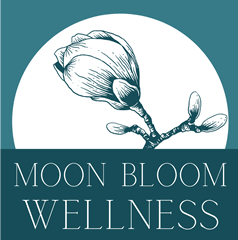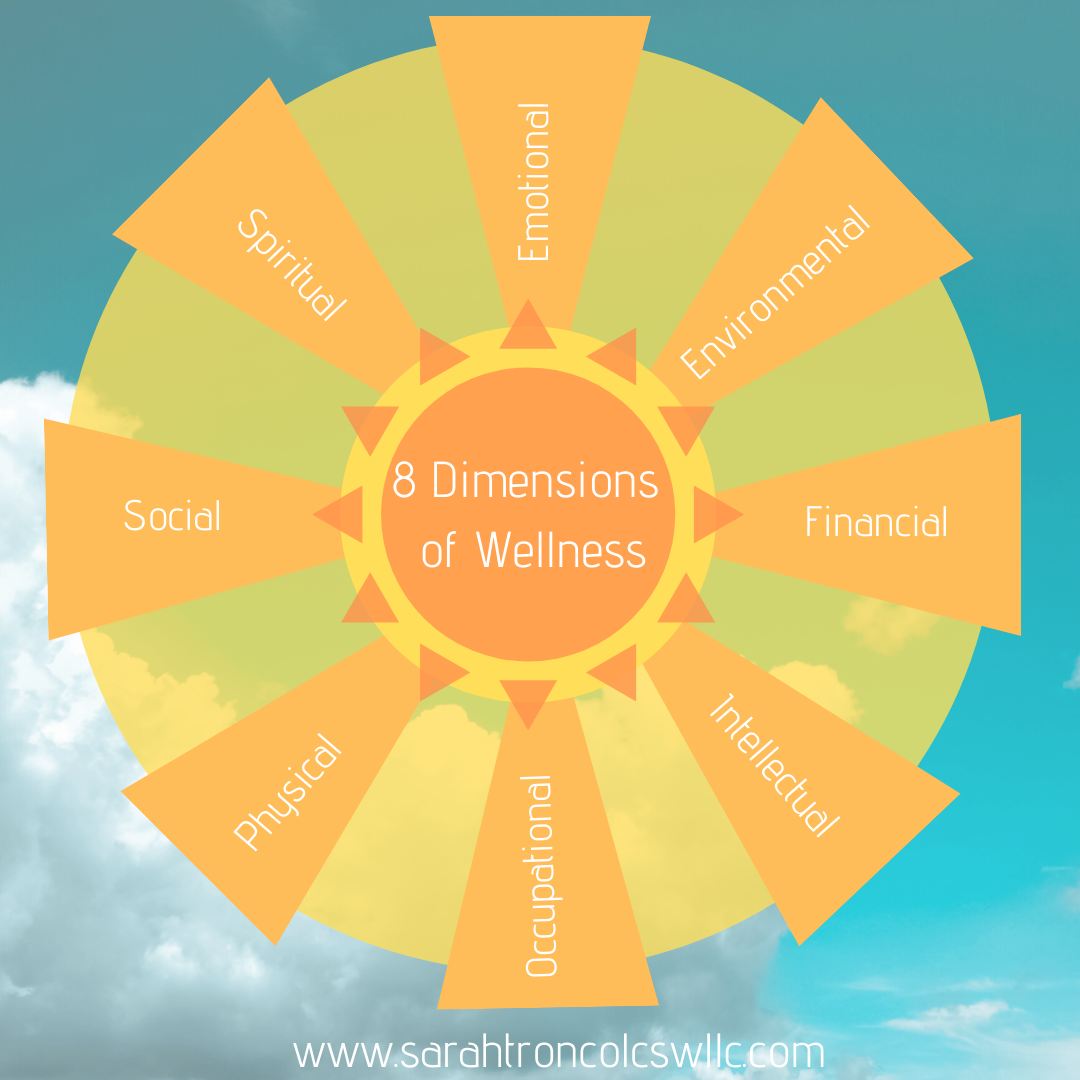The eight dimensions of wellness are identified by the Substance Abuse and Mental Health Services Administration as the key areas to focus on for optimal living. The model is widely used within colleges and universities, hospitals, mental health organizations, and so on, because it provides a framework to assess and develop wellness within the whole person. I first learned about the eight dimensions of wellness as an intern at the Mental Health Association of Atlantic County in 2012 and continue to find it to be a valuable tool for taking a comprehensive look at the areas that impact overall quality of life.
It’s important for everyone to be aware of how they are doing within each of the domains, because they are interdependent. If one area is neglected or out of balance, it impacts other dimensions.
Below is a look at the eight dimensions of wellness and a brief description of each dimension:
Emotional. Emotional wellness is the ability to recognize and understand how you are feeling, and to respond to those feelings in a constructive way. It’s also necessary to respect and appreciate how other people are feeling.
Environmental. This dimension is about the connection between you and the environment you are in, and how that environment impacts you. For instance, a disorganized or chaotic space can cause someone to have difficulty focusing, whereas a calm and organized space would be more conducive to feeling peaceful and productive. Things like living in an unsafe or polluted area can adversely affect this dimension.
Financial. I’ve written about the connection between money and mental health in another post, in which money is indicated as one of the main sources of stress for Americans. Effectively managing financial stress by doing things like developing and sticking to a budget, having a savings plan, avoiding or decreasing debt, and being in touch with your spending habits contribute to financial wellness.
Intellectual. Engaging in activities that are intellectually or creatively stimulating to you is a way to make sure you are addressing your intellectual wellness. Doing things like reading, painting, puzzles, writing, or learning a new skill can promote intellectual well-being and growth.
Occupational. Occupational wellness looks at your satisfaction at work by evaluating the interplay of work/life balance and doing work that is meaningful and financially rewarding. Things like office culture, whether your job aligns with your values, and your support system at work also impact how well you are doing in the occupational dimension.
Physical. Your physical health depends on many factors, such as your diet, exercise habits, and sleep patterns. These behaviors together influence your overall physical health. Avoiding destructive coping skills, like smoking or drinking excessively, can help you to maintain wellness in this category.
Social. Cultivating and maintaining a healthy support system is key to having social wellness. Spending time with friends and making new friends by joining organizations or clubs can help you to feel connected to others. Also, having a good sense of personal boundaries is essential to promoting your social well-being.
Spiritual. Having a sense of purpose and meaning will help you to develop your spiritual wellness. Knowing what your values are and acting in alignment with them, as well as taking time to connect with yourself, will strengthen your spiritual dimension. Staying playful and curious can help too. Check out this post I previously wrote for tips on how to be a more playful adult.

